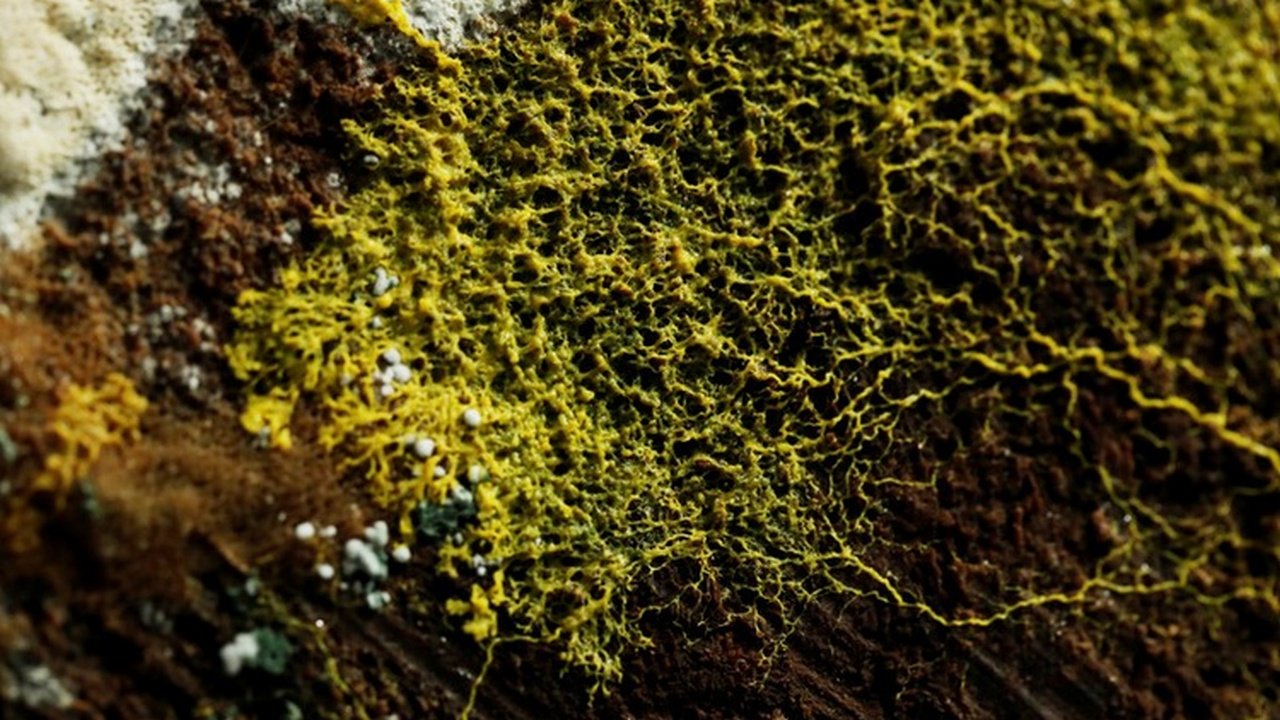The ‘blob’: zoo unveils mystery slime with 720 sexes
Extraordinary organism can learn and eat despite having no brain or mouth

A free daily email with the biggest news stories of the day – and the best features from TheWeek.com
You are now subscribed
Your newsletter sign-up was successful
A zoo in France is set to unveil a mysterious new organism dubbed the “blob” - a bright yellow slime mould that looks like a fungus but acts like an animal.
The bizarre new exhibition at Paris Zoological Park has “no mouth, no stomach, no eyes, yet... can detect food and digest it”, The Guardian reports. According to scientists, the slime - which they call physarum polycephalum - also has 720 genetic sexes but no brain, yet is “intelligent” enough to find its way through a maze and transmit knowledge to other blobs, adds CNet.
“The blob is really one of the most extraordinary things on Earth today,” said Bruno David, director of the Paris-based French National Museum of Natural History. “It’s been here for millions of years, and we still don’t really know what it is.”
The Week
Escape your echo chamber. Get the facts behind the news, plus analysis from multiple perspectives.

Sign up for The Week's Free Newsletters
From our morning news briefing to a weekly Good News Newsletter, get the best of The Week delivered directly to your inbox.
From our morning news briefing to a weekly Good News Newsletter, get the best of The Week delivered directly to your inbox.
He added: “It surprises us because it has no brain but is able to learn ... and if you merge two blobs, the one that has learned will transmit its knowledge to the other.”
The mystery surrounding the organism has left scientists unsure about how to classify it. Indeed, as Science Alert notes: “The 900-odd species of slime mould, of which P. polycephalum is just one, are a taxonomic headache. They’re currently boxed into the Protista kingdom, because where else are you going to put something that isn’t a fungus, plant, bacteria, or animal?”
Audrey Dussustour, an animal cognition researcher at the Toulouse-based Paul Sabatier University, says the slime “is an unclassifiable as it has characteristics from the three major kingdoms”, reports English-language French news site The Connexion.
“It eats like an animal, but breeds like a mushroom, and has a plant colour,” added Dussustour, who says that while studying a number of separate blobs in her lab, she returned after a couple of days away to find them all melded together on the ceiling.
A free daily email with the biggest news stories of the day – and the best features from TheWeek.com
The extraordinary organism is due to go on display in the French capital on Saturday, in a “first-of-its-kind exhibit” - but some commentators are a little nervous about unleashing it on the public.
“The nightmare creature is, of course, named after the 1950s Steve McQueen classic, The Blob,” says CNet’s Jackson Ryan. “And I'll just say this at the top: I don’t know what you think you’re doing, Paris Zoo, but I have seen exactly how that film plays out.”
-
 How to Get to Heaven from Belfast: a ‘highly entertaining ride’
How to Get to Heaven from Belfast: a ‘highly entertaining ride’The Week Recommends Mystery-comedy from the creator of Derry Girls should be ‘your new binge-watch’
-
 The 8 best TV shows of the 1960s
The 8 best TV shows of the 1960sThe standout shows of this decade take viewers from outer space to the Wild West
-
 Microdramas are booming
Microdramas are boomingUnder the radar Scroll to watch a whole movie
-
 Epstein files topple law CEO, roil UK government
Epstein files topple law CEO, roil UK governmentSpeed Read Peter Mandelson, Britain’s former ambassador to the US, is caught up in the scandal
-
 Iran and US prepare to meet after skirmishes
Iran and US prepare to meet after skirmishesSpeed Read The incident comes amid heightened tensions in the Middle East
-
 Israel retrieves final hostage’s body from Gaza
Israel retrieves final hostage’s body from GazaSpeed Read The 24-year-old police officer was killed during the initial Hamas attack
-
 China’s Xi targets top general in growing purge
China’s Xi targets top general in growing purgeSpeed Read Zhang Youxia is being investigated over ‘grave violations’ of the law
-
 Panama and Canada are negotiating over a crucial copper mine
Panama and Canada are negotiating over a crucial copper mineIn the Spotlight Panama is set to make a final decision on the mine this summer
-
 Why Greenland’s natural resources are nearly impossible to mine
Why Greenland’s natural resources are nearly impossible to mineThe Explainer The country’s natural landscape makes the task extremely difficult
-
 Iran cuts internet as protests escalate
Iran cuts internet as protests escalateSpeed Reada Government buildings across the country have been set on fire
-
 US nabs ‘shadow’ tanker claimed by Russia
US nabs ‘shadow’ tanker claimed by RussiaSpeed Read The ship was one of two vessels seized by the US military